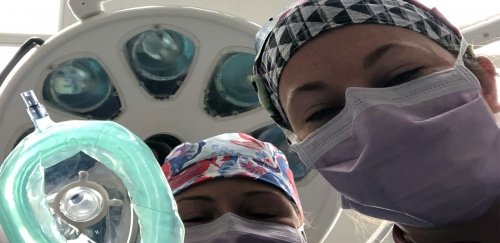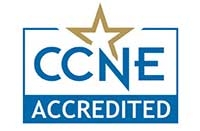Prepared for Certification Exams
Upon successful completion of this program, graduates are eligible to sit for the National Board of Certification and Recertification for Nurse Anesthetists Nurse Anesthesia certification exam.
More Program Specifics
Accreditation
The baccalaureate degree program in nursing, master’s degree program in nursing, and Doctor of Nursing Practice program at Rhode Island College are accredited by the Commission on Collegiate Nursing Education.
The BSN to DNP, with Nurse Anesthesia Specialization program is fully accredited by the Council on Accreditation (COA) of Nurse Anesthesia Education Programs, a specialized accrediting body recognized by the Council for Higher Education Accreditation (CHEA) and the US Department of Education. The program maintains full accreditation through May 2026. COA mailing address: 10275 W. Higgins Rd., Suite 906, Rosemont, IL 600618-5603.
Recent Recognition
Money Magazine recently ranked Rhode Island College as one of the best nursing master’s programs for your money! Weighing quality against cost—and considering debt, employment rates, and recent graduate salaries—our program received 4 out of 5 stars!




